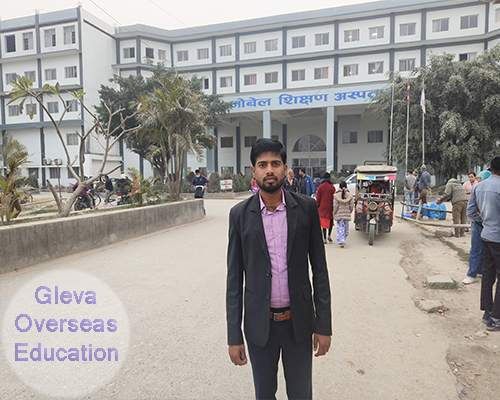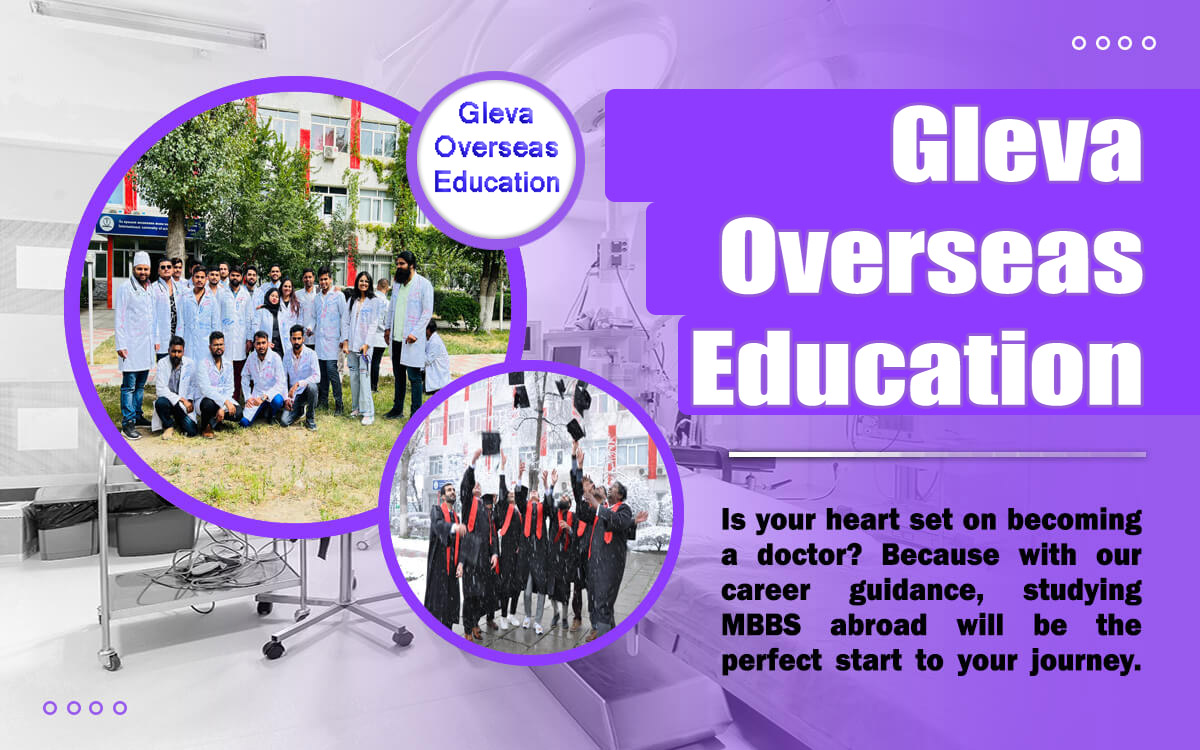
Recognized by Nepal Medical Council, NMC (NATIONAL MEDICAL COMMISSION)
WDOMS, FAIMER, ECFMG and the medical councils of many countries
WHO approved
Welcome to Nobel Medical College and Teaching Hospital, a place where your dreams of becoming a healthcare professional come true!
Nobel Medical College and Teaching Hospital in Nepal stands as an excellent option for Indian students aspiring to pursue medical education abroad. To ensure a seamless admission process and to ease the journey, Gleva Overseas Education Pvt. Ltd. (GOEPL) extends specialized guidance and support tailored specifically for Indian students. As a renowned consultancy firm, GOEPL specializes in assisting students with applications to medical universities abroad. Their seasoned team of counsellors offers comprehensive assistance to Indian students keen on studying at Nobel Medical College and Teaching Hospital. They aid students in selecting appropriate programs that align with their career aspirations and guide them through the admission requirements, ensuring accurate and timely submission of all necessary documents and applications.
Nobel Medical College and Teaching Hospital is a renowned institution nestled in the heart of India, dedicated to shaping the future of healthcare. With our world-class facilities and experienced faculty, we are committed to providing exceptional medical education and healthcare services.
Indian students thrive at Nobel Medical College and Teaching Hospital, excelling in their medical studies while immersing themselves in a vibrant campus life rich with diverse cultural experiences.
Academics at Nobel Medical College and Teaching Hospital are designed to provide students with a comprehensive and rigorous medical education that prepares them for successful careers in healthcare. Here's an overview of our academic offerings:
Undergraduate Programs:
- Bachelor of Medicine and Bachelor of Surgery (MBBS): Our MBBS program is designed to provide students with a solid foundation in medical science, clinical skills, and professional ethics. Through a combination of classroom lectures, laboratory work, and clinical rotations, students gain the knowledge and skills necessary to become competent medical professionals.
Postgraduate Programs:
- Postgraduate Medical Courses: We offer a variety of postgraduate medical courses for students who wish to specialize in a particular area of medicine. These programs provide advanced training and education in fields such as internal medicine, surgery, pediatrics, obstetrics and gynecology, and more.
Nursing Programs:
- Nursing Education: Our nursing programs prepare students to provide high-quality nursing care in a variety of healthcare settings. Students learn about patient assessment, nursing interventions, medication administration, and patient education through a combination of classroom instruction and clinical practice.
Allied Health Sciences Courses:
- Allied Health Sciences: We offer courses in allied health sciences, including medical laboratory technology, radiology, physiotherapy, and pharmacy. These programs equip students with the specialized knowledge and skills needed to support healthcare professionals in the diagnosis, treatment, and rehabilitation of patients.
Teaching Methodology:
1. Lecture Halls: Spacious and well-equipped lecture halls provide an ideal learning environment for students, with multimedia facilities for interactive teaching sessions.
2. Library: Our library houses a vast collection of medical textbooks, journals, and online resources to support students and faculty in their academic pursuits.
3. Laboratories: Modern laboratories equipped with the latest technology allow students to engage in hands-on learning experiences in subjects such as anatomy, physiology, biochemistry, pathology, microbiology, and more.
4. Simulation Center: Our simulation center provides realistic clinical scenarios for students to practice and enhance their clinical skills in a safe and controlled environment.
1. Hostel Accommodation: On-campus hostel facilities provide comfortable accommodation for students, with amenities such as dining halls, recreation areas, and 24/7 security.
2. Cafeteria: A spacious cafeteria serves nutritious meals and refreshments to students, faculty, staff, and visitors.
3. Sports and Recreation: Facilities for sports and recreation, including indoor and outdoor sports facilities, gymnasiums, and green spaces, promote physical fitness and well-being among students and staff.
4. Transportation: Transport services ensure convenient access to and from the campus for students and staff.
5. Administrative Offices: Administrative offices provide support services related to admissions, academic affairs, student affairs, finance, and human resources.
- Peer Tutoring: Upperclassmen often mentor and support junior students in their academic journey, providing guidance and assistance when needed.
- Study Groups: Students frequently form study groups to collaborate on assignments, prepare for exams, and reinforce learning through group discussions.
- Student Clubs and Societies: There are various clubs and societies focusing on interests such as sports, arts, culture, community service, and academic interests. These clubs organize events, workshops, and competitions throughout the year.
- Cultural Events: Festivals and cultural events are celebrated with enthusiasm, showcasing the diversity of India's cultural heritage. Students participate in traditional dances, music performances, and food festivals.
- Sports Tournaments: Intercollegiate sports tournaments provide opportunities for students to showcase their athletic talents and foster camaraderie among peers.
- Fresher's Welcome: New students are warmly welcomed with orientation programs and events to help them acclimate to college life and forge friendships.
- Farewell Ceremony: Seniors bid farewell to graduating students with heartfelt celebrations, reminiscing about their time together and wishing them success in their future endeavors.
- Annual Day: The college organizes an annual day celebration featuring cultural performances, skits, and awards to recognize student achievements and talents.

Choosing to pursue a medical education at the Nobel medical College and teaching hospital in the Nepal presents students with a remarkable opportunity to receive top-notch medical training at a reasonable cost. Studying medicine at this esteemed institution is known for its affordability, making it an appealing option for aspiring medical professionals seeking excellent education without the hefty price tag commonly associated with medical programs in other countries.

Student life in Nepal for Indian students, particularly those studying MBBS, can be enriching and diverse. Here's a glimpse into student life and Indian food options in Nepal:
1. Cultural Integration: Nepalese culture shares many similarities with Indian culture, which can help Indian students feel more at home. From festivals like Diwali and Holi to cultural practices and traditions, there are elements that resonate with what Indian students are familiar with.
2. Campus Activities: Universities in Nepal, including medical colleges like Nobel Medical College, often have vibrant student communities. These communities organize various activities such as cultural events, sports competitions, and academic seminars, providing opportunities for socializing and personal growth.
3. Accommodation: Indian students typically live in hostels or rented accommodations near their college campuses. This allows them to be close to academic facilities and also fosters a sense of camaraderie with fellow students.
4. Exploring Nepali Cuisine: While Nepali cuisine has its own unique flavors and dishes, there are similarities with Indian cuisine, especially in terms of spices and cooking techniques. Indian students can enjoy Nepali staples like dal bhat (lentil soup with rice), momos (dumplings), and various types of curries. Additionally, many restaurants and eateries offer Indian food options, ensuring that students can satisfy their cravings for familiar tastes from home.
5. Engagement with the Local Community: Nepalese people are known for their warmth and hospitality. Indian students have the opportunity to engage with the local community, whether through volunteer work, cultural exchanges, or simply by interacting with neighbors and shopkeepers. This interaction can deepen cultural understanding and create meaningful connections.
6. Academic Life: Studying MBBS in Nepal involves rigorous academic coursework, practical training, and clinical rotations. Indian students immerse themselves in their studies, attending lectures, participating in labs, and gaining hands-on experience in hospital settings. While the academic workload can be demanding, students also find support from faculty members and peers.
Overall, student life in Nepal offers a blend of cultural familiarity, academic challenges, and culinary delights, making it a memorable and rewarding experience for Indian students pursuing their education abroad.

Stay ahead of the curve on your MBBS admission abroad! Sign up for our expert medical consultancy updates and receive the latest news and advice on top international universities, application procedures, scholarships, and more. Don't miss your chance to make become a Doctor a reality.